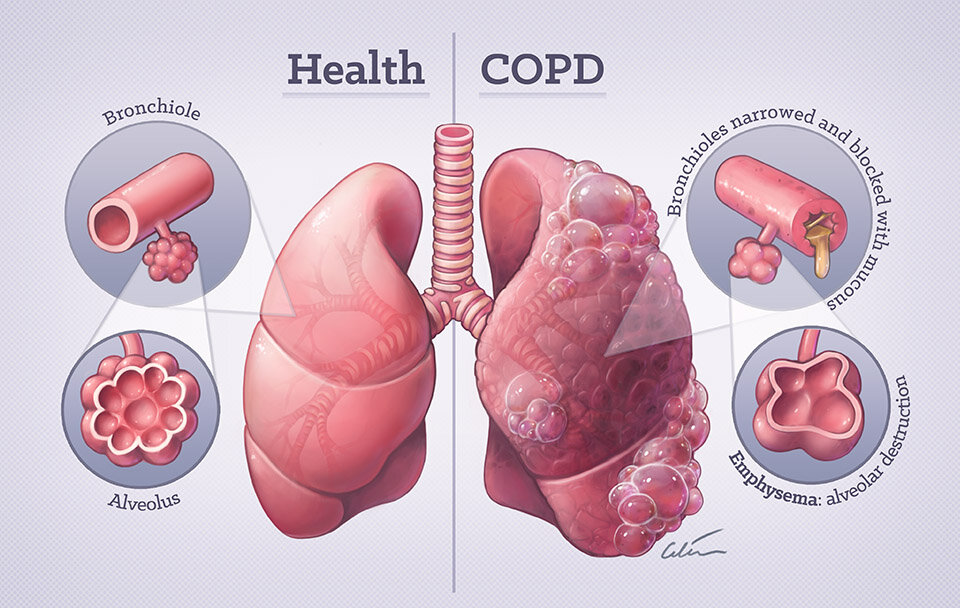
Chronic obstructive pulmonary disease (COPD) is a chronic progressive respiratory condition typically associated with smoking and/or exposure to harmful substances on the lungs. It is characterized by reduced airflow in the lungs due to obstruction (difficulty in air passage) and inflammation in the airways.
Here are some key aspects of COPD:
- Causes: The main cause of COPD is tobacco smoking. However, prolonged exposure to harmful chemical substances on the lungs (such as harmful gases, fumes, dust) can also contribute to the development of this disease. Genetic factors may also influence the development of COPD.
- Symptoms: Key symptoms of COPD include cough, often with excessive mucus production, shortness of breath (especially during physical activity), wheezing, fatigue, and chest tightness. These symptoms may worsen as the disease progresses.
- Diagnosis: Diagnosis of COPD involves physical examination, lung function tests (such as spirometry), as well as medical history assessment and exclusion of other possible causes of symptoms.
- Progression and Complications: COPD is a progressive disease that can lead to serious complications over time, such as chronic respiratory failure, heart failure, and an increased risk of lung cancer.
- Treatment and Management: COPD is incurable, but symptoms can be managed and the progression of the disease slowed. Treatment includes the use of bronchodilators to widen the airways, anti-inflammatory medications, physical exercise, rehabilitation programs, and smoking cessation.
- Prevention: The main way to prevent COPD is to quit smoking and avoid exposure to harmful substances on the lungs. Regular medical check-ups and timely consultation with a doctor when symptoms appear can also help in early detection and management of the disease.
It is important to remember that COPD is a serious condition requiring careful medical monitoring and management. If you suspect you have this disease or experience similar symptoms, seek medical attention for diagnosis and treatment.
